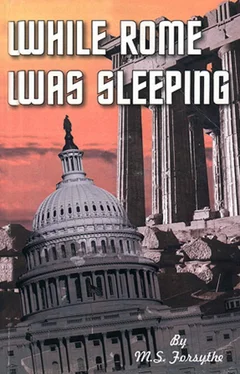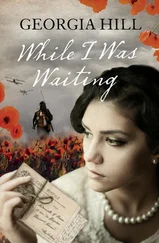Ben sat in a chair opposite Jack and studied him for a moment before responding, “My friend, you need some relief from the weight of the burden you carry. If you do not get it, I am afraid it will continue to grow and devour you. While I do not know if I am the one to help you, I do know that allowing light into our dark places is often a way to begin the healing process. And perhaps later, together, we can work on finding a solution.”
“It was partly the explosion…” Jack offered.
“You mean the event that triggered Sunday night? But you didn’t know it was Andrew and Charlene… so it was the event itself.”
Jack mumbled, “Yes, Something like that.”
There was a period of silence—Ben waited.
Jack was thinking, “This isn’t going to be easy.” He spoke softly, “I don’t know where to begin.”
“Why not talk about George Kelshaw? When was the last time you saw him?”
“In July in Bangkok.”
“Of this year?”
“Yes.”
“How did you find him?”
“He found me… he had been looking for me after he had escaped from the Pathet Lao. He had escaped with the help of Hmongs and a Chinese man, and had gone to Vientiane where we had originally set up a meeting place. I had left word with my contacts where I would be in Bangkok.
“He and his Chinese friend had to get out of Vientiane and they made it to Bangkok where he found me. George was afraid he was being followed; he wasn’t sure by whom, but it could have been the Pathet Lao. At the time George was very sick he had malaria and he had not recovered from the treatment he had received as a POW.
“He knew whoever was following him had trailed him and his Chinese friend to Bangkok, so we had to be very careful to protect him while he was regaining his strength. Even so, George had a task he felt driven to undertake before he would leave Bangkok.”
Father Ben asked, “He was a prisoner for how long?”
“Nearly five years, from 1973 to 1978. We were captured together.”
Father Ben stopped and looked incredulously at Jack, “You said, ‘we were captured’—were you a prisoner, Jack?”
“Yes, and it was my fault; at least it was because of me that George was captured,” he answered.
“What do you mean—your fault?” Father Ben asked.
“If he hadn’t been slowed down by me, he might have gotten away. I insisted that I go with him; I wanted an exclusive story—and I wanted to meet Vang Pao.”
“Getting an exclusive news story was your job, wasn’t it, Jack?”
“Yes…, initially, I was assigned to cover the peace negotiations, then Kelshaw came along and I saw it as an opportunity.”
“You acted as any good correspondent should, so blaming yourself is a fruitless exercise,” Ben said gently, and asked, “You got your exclusive story?”
“I guess I did,” Jack responded.
“Can you talk about what happened to you as a prisoner?” Ben pressed gently.
“It wasn’t just what happened to me, Father, but what happened to Kelshaw and others.”
Jack recounted the days and weeks in captivity. Then he spoke of George’s disappearance and how glad he was to eventually learn that George had survived.
“When were you released?” Father Ben asked.
“They didn’t release me, Father; I was rescued by the Hmongs, Vang Pao’s people. I don’t remember the rescue. The last I knew I was in a pit in the camp and I woke up in a hospital in a place called Long Tieng. One of the Hmong who stayed with me told me that George had survived, but that he was still a prisoner. Vang Pao had people watching and tracking where he was. I think they planned to rescue him if they could.
“Long Tieng was a strange place. I knew there were Americans there, I was treated by American doctors who patched me up… I guess I was in bad shape. But they really didn’t want to talk to me or answer questions other than about my medical condition. They didn’t even want me to go outside of the building when I was able. I’m sure they knew I was a correspondent.
“I heard lots of aircraft landing and taking off I knew it had to be American planes, but I didn’t encounter one other American until they moved me out to Vientiane; then I saw a pilot and crew. Long Tieng was a secret airbase of some sort, probably CIA. A lot of the Hmongs would come in to see me and they were the only ones who tried to communicate with me.
“The last day there, General Vang Pao himself came to see me and tell me they would continue to track Kelshaw and the other prisoners. I found out that this place was also his headquarters. He told me then that the Pathet Lao was slowly getting closer and that Long Tieng may have to be abandoned. He didn’t volunteer any information and for once, I didn’t ask.
“Vang Pao told me that he would get word through to Kelshaw that I was safe and he also assured me that I would continue to get reports on Kelshaw through his people after I got back to Vientiane. That was important; Kelshaw and I had an agreement that I would send any information from him to Neil Klein. That was the agreement and I intended to keep it even if it was only to say he was still alive!”
Father Ben had listened intently and when Jack paused he interjected, “Let’s go back to your time as a prisoner, Jack, you went through some terrible experiences, are those memories what it is that is eating you up inside?”
“I’m not sure what’s eating me up, Father. Maybe it is… I don’t know,” Jack said ponderously. “I had always looked at war as a bystander… trying to remain above it all, neutral and objective. I did my job, wrote the stories, covered battles and events, sometimes barely getting away by the skin of my teeth. I always believed that I had to be dispassionate in order to present things in a true light. All that changed when we were captured. I realized how frightened I was… and that maybe the reason I had viewed myself as a bystander was that I was really a coward.”
Ben shook his head no, but allowed Jack to continue.
“When we were captured I found myself in hell and what was worse, because of me, Kelshaw was in a deeper hell than I and I couldn’t do anything about it. No amount of dispassionate explaining or neutrality made the slightest difference. I encountered men who were not just soldiers fighting for a cause, but men who hated so much! And the hate didn’t stop with us as Americans it was directed at their own countrymen.
“I don’t know what I feared more; whether I was afraid of what would happen to George and me personally, or knowing that my life, or whatever was left of it, was in the control of men with so much hate! That’s when I saw the others, prisoners, some of them Americans, who had been there for months maybe even years; some were barely alive and surviving in such terrible conditions and I got sick.
“I asked myself how, with all of the lessons in the history of the world, can there be such savagery left in we Homo sapiens? How can men who call themselves civilized, treat each other like that, Father?” Jack asked angrily.”
Ben shook his head in silence at the anguish that Jack was reliving, but he said nothing as Jack continued.
“You know what, Father? I learned to match their hatred; I, Jack Hubbard, objective Jack Hubbard, came to hate them just as much, maybe more! It was my passionate desire to literally see them burn in hell and never… ever…, receive any mercy from anyone. That was how I survived; it was the only way I could,” Jack’s intensity was mounting.
“And now when I think about it, it’s like a black hole inside my gut; I always thought I was better than that, but I’m not. You see, Father, deep down, I still hate them! And there isn’t enough booze in the world to make it go away!” Tears were running down Jack’s face as he struggled to regain his self control.
Читать дальше












